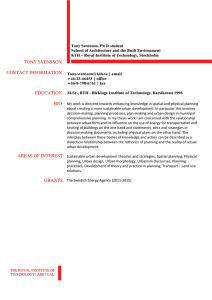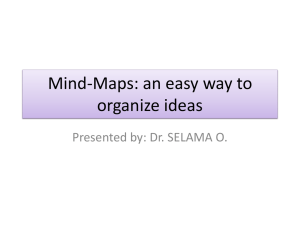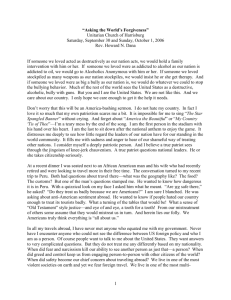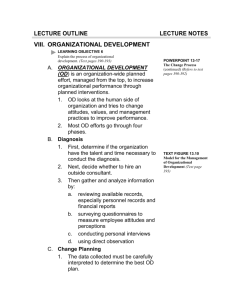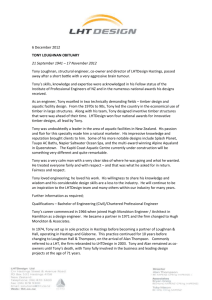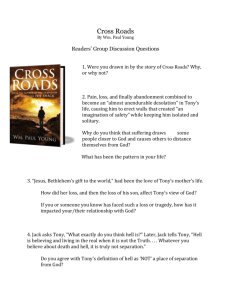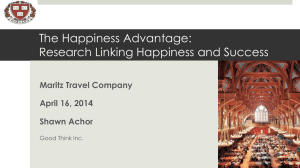The Unhappiness of Tony Soprano: An Ancient Analysis - AST-TOK
advertisement
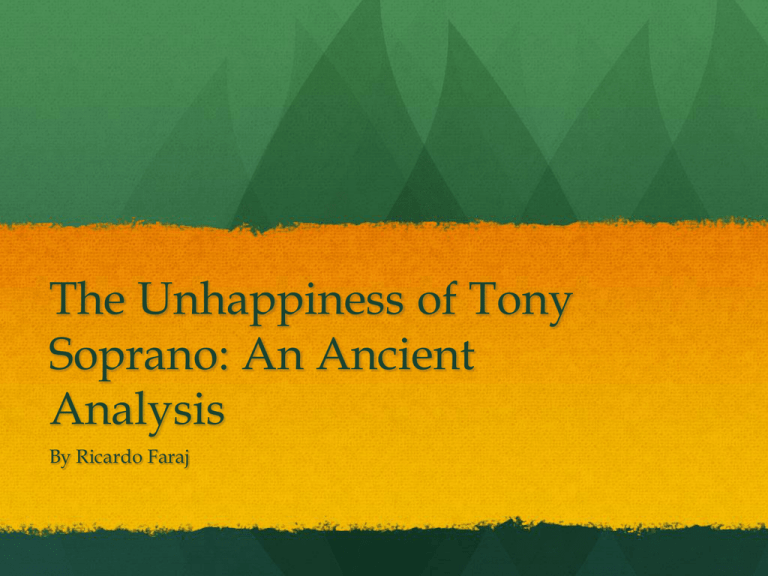
The Unhappiness of Tony Soprano: An Ancient Analysis By Ricardo Faraj “Tony on Happiness” Tony Soprano is a man who has both aim and reach. Tony is not happy, despite “having it all”, Tony feels like such a loser. He approaches happiness in three different ways: that of the “whiners”, the “happy wanderers”, and the “Gary Cooper”. “The Rest of Us” Aristotle summarized that it was a matter of ancient “common sense” the suggestion that happiness is a matter of achieving a list of things. The Stoics said that in response to a list, “not even” an abundance of goods makes a difference to our hapiness”. To ancient greeks, happiness has two components: 1. Happiness is a matter of what we do and how we do it. 2. To live a happy life requires an effort to understand what really makes life good. “Happiness Requires Integrated Motivations” We must start by reflecting upon what it is we are really after when it comes to our pursuits. If we do come to realize what motivates, the ancient imperative is to continue to pursue only those things whose motivation is one that can integrate all of our pursuits. Tony actually tries to justify his mob acitvity because it allows him to support his family. “Objections to the Integrated Motivations View” The Ancients think they can recommend a happy life as if it and an ethical life are one and the same. But, really, whatever the psychological benefits of working from a consistent set of motivations, they amount to neither happiness nor morality. “Gary Cooper” Tony has to reset his aims. He is not pursuing the things that will satisfy him and instead acting under a sort of compulsion. He cannot control his desires, Dr Melfi suggests to Tony that behavior therapy might help Tony to manage his “anger triggers”.

